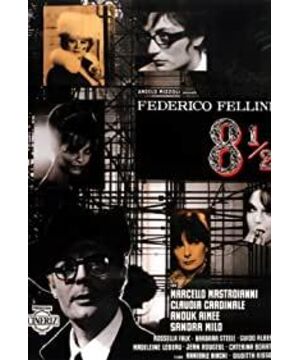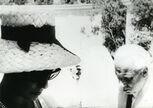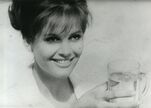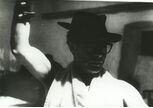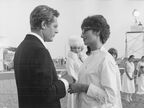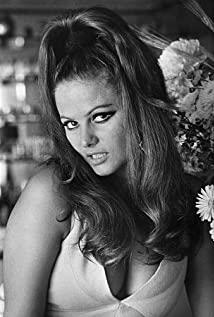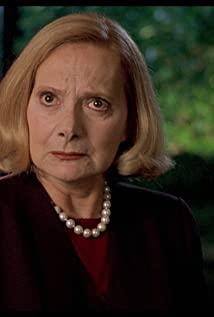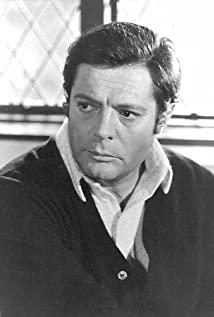"Eight and a Half"? It is generally believed that this is Fellini's film number. His first directorial work was "The Showtime / Lucidelvarietà (1950)" co-directed with Alberto Lattuada, so "Eight and a Half" can be said to be The eighth half-work directed by Fellini himself.
The first male lead in Fellini's films, San Mastroianni, a European lover, played a reporter in "La Dolce Vita", and in "Eight and a Half", he became a director who was thinking about filming. If La Dolce Vita was the work that took Fellini from neorealism to abstraction, then his Eight and a Half Parts was a complete abstract film. This "movie within a movie" seems like a book from heaven to many people, but in any case, Fellini showed his wild dreams in the movie and realized these dreams in scenes. Fellini fully realized his obsession with dreams and his fascination with circus performances in "Eight and a Half". In the movie, Mastroianni turned into the director's spokesperson, and the movie he wanted to make was called "Eight and a Half".
At the beginning of the movie, he was trapped in the car and couldn't move. When he was about to breathe, he suddenly flew out of the car. When he thought he was going to be free, he was pulled into the sea by the bishop's entourage by dropping a kite. . Although this surreal handling method only appeared for a few minutes at the beginning of the film, it has become a famous movie scene in film history, as if telling the audience that the director's mood changes when facing the creative bottleneck.
It is difficult for us to define the main axis of the movie plot of "Eight and a Half". It seems that Mastroianni, who is the director's incarnation, keeps repeating "This is not what I want to shoot", "This is not what I want", and even " I don't know what to shoot at all." And childhood memories, fantasies about women, and confusion about life are interspersed in "Eight and a Half" in fragments.
Of course, the reason why Fellini's films often appear to be intertwined between fantasy and reality may have something to do with his naming of movie characters. For example: Marcello, the male protagonist of "The Sweetness of Life", is taken from Mastroianni's original name, and the actress Claudia in "Eight and a Half", who is admired and fascinated by the male protagonist, but cannot be understood, plays this role The real name of the Tunisian actress Claudia Cardinale. "Ghost Juliet" also cast Juliet Tamasina as a woman named Juliet. "San Yan Xi Chun" also let Anita Eckberg play "Anita". In addition to the main characters, some important supporting characters also use this "real nomenclature" to name their characters, which gives Fellini's films a space for thinking about reality insinuating and betting on fantasy.
Anyone who has seen a Fellini movie will find that he loves two things: fat women and circuses.
Forget the circus, it's a peculiar thing that a director likes to put fat women in his movies. He mentioned his fantasies about women in his autobiography "Dream is the Only Reality". He believed that appetite and sexual desire were closely related, so women who could eat were particularly fascinated by him. Therefore, when he was casting and writing the script, he could not help but think of the plump breasts and buttocks of women. From this point of view, it is not difficult for us to explain why the director put special emphasis on the charming Swedish lady in "The Sweetness of Life". boobs and hips. The fantasy of the connection between women and appetite makes Mastroianni in the fantasy life of "Eight and a Half", he is taken care of by every woman he has encountered since childhood and impressed him, even arbitrarily. Dominating this group of fat and thin, we can see several "fat" women - either in bust or hip size - fully expressing the director's fantasy of femininity and desire. Of course, Fellini's portrayal of women might be labelled objectification of women, or even chauvinism, by today's feminists. But if you look closely, you will find that many of the women in the camera are exaggerated by Fellini, and there is no humiliation or arrogance behind the limbs. He just uses women to express society's repression of sex, the worship of sex, the fanaticism and taboo behind desire, and the contradiction between them.
The huge scaffolding, exaggerated sets, and dazzling actresses from all over the world who appear on the set in the movie seem to tell the audience that the director is about to complete a movie with a big scene, a big production, and a big cast, but it is the director who plays the role. Mastroianni faced the dilemma of being dragged away by producers and constantly trying to escape from the set. Movies require huge funds, ambition and manpower, but behind this huge finished product is not necessarily what the director himself wants. What the director wants is not necessarily a set character and script, but an impromptu dance performed by an untrained sailor may become the director's favorite scene.
Behind the attempt to escape the reality of the studio, there are clowns and circuses, calling everyone around, dancing and singing like a festival. This free-spirited and crazy imagination is the belief and principle that has long supported Fellini's filmmaking.
=========
Fellini faced creative difficulties before making "Eight and a Half". At that time, the production was confirmed, the contract was signed, some scenes were set, and everyone was ready, just waiting for Fellini to start shooting. No one knew that he had encountered a bottleneck, and he had no clue about the movie he originally planned to make. It's just that everyone trusts him, and his whole person is in a state of confusion. Finally, Fellini had a flash of inspiration. He decided to talk about a director who didn't know what film he was going to make, and the chaotic process he went through was later "Eight and a Half", so the film was somewhat autobiographical. Dreams have always been very important to Fellini, and he even believes that dreams are the only reality. Some scenes or passages in his works are more or less related to the dreams he had. Just like the shocking scene at the beginning of "Eight and a Half", the entire exit lane was crowded with vehicles, and every vehicle could not move. One of the cars appeared to be malfunctioning, with thick smoke coming from inside. The man in the car was in a hurry to escape from the car. After a while of panic, he finally escaped from the car and went to the exit of the exit. As soon as the man got out of the exit, he flew into the sky. When the scene changed, the man was already in the air. At this time, he found a rope tied to his ankle. The other end of the rope seemed to be a news reporter. He was pulled down from the sky, and the man fell into the sea. With the sound of rapid breathing, Guido, the director who was receiving treatment at this time, woke up from a nightmare. At this time, we knew that the scene just now was the director's dream. This nightmare not only illustrates the predicament Guido faced in "Eight and a Half", but also points out the many setbacks and difficulties that Fellini suffered in real life, making the film. The most amazing thing in "Eight and a Half" is the way in which dreams and reality, fantasy and reality overlap each other. One minute, the protagonist is still facing his difficulties in the real scene, the next minute the scene remains unchanged, but the characters have entered the world of the protagonist's fantasy. This invisible transition between dream and reality shows Fellini's wonderful mise-en-scene.
During the filming of "Eight and One and a Half", Fellini was introduced by a psychiatrist friend and came into contact with the works and theories of the psychology master Jung, which made him plunge into the world of psychology and couldn't extricate himself. As he said, because of Jung's incisive insight that dreams are imagination, he has a deeper understanding of dreams. And Jung made him feel like a confidant, like a family member, because no one could understand how important dreams were to his creation, and Jung also had an influence on his work. His interest in psychological excavation and therapy is also reflected in "Eight and a Half". The film presents the anxiety of director Guido's own life and creation when making the film. He is surrounded by producers, stars, screenwriters and other staff all day long, and everyone has job problems for him to solve. The producer wanted him to start shooting quickly because of the budget. The star has questions about the role, the screenwriter is waiting for him to answer questions such as the scriptwriter's worries, and there are a lot of trivial questions in life waiting for him. It was also because of the pressure from all sides that he needed treatment. Guido, played by Mastroianni, actually also plays Fellini's spokesperson, the director's avatar. Fellini uses film creation to explore the problems in his heart and the problems he faces in his life, so the problems that Guido faces in the film are more or less related to Fellini himself. Like in "Eight and a Half", Fellini uses Guido's dream to relate to people and things in his own heart and life. Just like the scene where Guido dreamed of his parents, he not only talked to his mother, but even his deceased father, who was not at home all the year round, climbed out of the grave to chat with him. There are also Fellini's childhood memories, which are also reproduced through film creation. Fellini uses dreams and imaginary scenes in his films to present his own problems or achieve satisfactory results. Just as a person expresses his heart to a psychiatrist, Fellini allows himself to experience a psychological treatment through "Eight and a Half".
Women have always been the source of inspiration for Fellini. Compared with men, women are more sexy, more complex and interesting, more elusive, and more able to trigger his creative impulse. From the "Eight and a Half" in Guido dealing with many women, struggling between his wife and mistress is not difficult to find this. Whether it is his mother, his wife Julieta, or the prostitute character who is based on his childhood sexual enlightenment and often appears in his movies, with a plump figure like the mother of the earth, he can feel the influence of women on him. Women are his the goddess of myth. After a period of chaos, although the film was stopped, Guido finally accepted that his life was a puzzle, just like Fellini, who had been searching for the meaning of life, realized that life was meaningless during the filming of "Eight and a Half". Finally came to light. The scene at the end where all the characters gather in a dance and parade in a circle was originally the trailer filmed by Fellini for "Eight and a Half", not the ending of the movie, but after watching the raw film, he was greatly moved, and he Think of this scene as the end of the movie. These many characters dancing and marching in a circle with music may symbolize the people who have appeared in Fellini's life. Life is like a circular structure. Wherever you come from, there will be many passers-by to accompany you. Finish this lap. Finally, the lights focused on a circus boy playing a flute, and Fellini's everything started from wanting to be a member of the circus...
"Eight and a half" is a classic work that closely combines form and content , Fellini Ni's way of expressing reality and dreams is even more wonderful. Of course, it cannot be said that it is an autobiographical film of Fenegli. The film contains a lot of truth, lies and dreams, just like an art treasure house, which is left for the viewer to dig out the mysteries.
The storyline and character setting of "Gorgeous Age" should be not far from that of "Eight and a Half". However, it is a song and dance movie after all, and there are as many as 24 female characters. I believe that the entanglement between song and dance performance and the entanglement between men and women will be the focus of emphasis. Watch to know. However, the 24 heroines are all temporary choices. Not only the temperamental actress Nicole Kidman and the sexy beauty Penelope, plus the performance of singing and dancing, I believe it is a lively movie.
In 1963, "Eight and a Half" won the Oscar for Best Foreign Language Film, Best Costume Design Award, Best Foreign Language Film of the New York Film Critics Association, the Moscow Film Festival Award, and the Berlin Film Jury Special Award.
9 points.
View more about 8½ reviews


